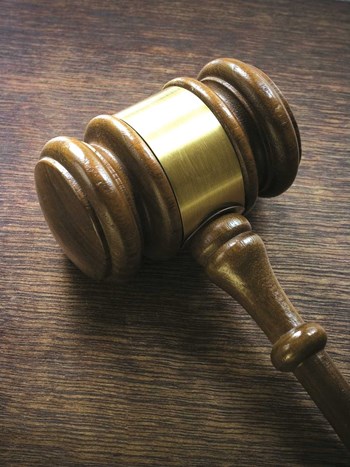
For nearly 20 years, the Community Associations Institute (CAI) has recognized excellence in the practice of community law through the Falls Church, Virginia-based College of Community Association Lawyers (CCAL). Of the tens of thousands of attorneys practicing community law across the United States, less than 150 have been granted exclusive membership in the college.
In 1993, the charter class consisted of 20 attorneys acknowledged by their peers as having developed the field of community association law. This burgeoning area of law focused on all areas of the law affecting community associations such as enforcement of an association’s rules and governing documents, litigation, mediation, arbitration and contract renegotiation and renewal.
“Lawyers generally don’t know much about community association law unless they work in it,” says CCAL member Marshall N. Dickler, of Dickler Kahn Slowikowski & Zavell, Ltd. in Arlington Heights. “CCAL is a place you go to in order to get educated and learn about these things. There are a lot of attorneys who don’t want to practice in this area and they don’t want to learn about it, so they call us or refer clients to us. And if there are attorneys who want to practice in this area, we are here to help them. That’s a generally accepted philosophy among all the attorneys across the country.”
Experts in the Field
The members of CCAL are considered experts in the field of community association law by their peers. The members distinguish themselves through the contributions to the development of the profession. Their service is demonstrated by a commitment to educate and empower boards and the 60 million residents of the 300,000 community associations across the country. In addition, CCAL provides a forum for the exchange of information among experienced legal professionals working in the community association field arena.
Since its inception in 1993, the founding principle of the CCAL is to promote high standards of professional and ethical responsibilities in the practice of community association law.
“The main mission of CCAL is to create an environment to educate attorneys, vendors and professionals in all aspects of community association law,” says CCAL member Howard S. Dakoff, Esq. of the Chicago-based law firm Levenfeld Pearlstein, LLC.
Other goals include developing and educating attorneys working in the field of community association law, facilitating the development of community association educational materials and programming related to legal issues for use by other professionals and homeowners, cooperating with international, national, state and local organizations, government agencies and other groups having an interest in community association law and creating a community of scholars to promote the professional development needs and career goals of CCAL members.
For Members Only
In order to be eligible for membership in the college, an attorney must have a minimum of seven years legal practice with a demonstrated concentration in community association law, five of which immediately must precede the date of application. They must be a member of the Community Associations Institute (CAI) and have attended at least one law seminar within the last five years. They must have demonstrated significant involvement in the provision of legal services to community associations through the attainment of 12 out of a possible 15 points, and finally, community association law has to constitute at least 50 percent of their current practice.
“In addition to the eligibility requirements, an individual has to be an avid author and speaker on community association law issues,” says Dakoff. “I had to submit copies of articles that I had written pertaining to community association law, syllabi from seminars that I had done about community association law, and a few other things. It was a lengthy application process, but well worth it.”
Dakoff is one of only a handful of Chicago area members of the CCAL, and was admitted to the college in September 2011. “The criteria are really to demonstrate leadership in community associations,” he says. “Somebody could be practicing in this sphere but not be a leader, and they might not be admitted based on that. So there may be somebody who is bright and articulate and informed on the law but the admissions committee also looks for legislation participation. If a candidate applies and they are not accepted, the committee will tell you what areas that you need to improve on.”
Additional information on becoming a member can be found on CAI’s website http://caionline.org/career/designations or by calling 703-970-9220. For questions regarding the application process contact Michael Hedge, CAI’s Director of Government & Public Affairs at mhedge@caionline.org.
Building Community
CCAL hosts an annual community association law seminar that features emerging trends and legislative issues important to the practice of community association law.
This years’ CCAL seminar was held January 26–28 in Palm Springs, California. Topics included Qualified Mortgages: New Standards, New Challenges; Recalls: The Hidden Pitfalls; When a Director or Manager gets SLAPPed: The Ins and Outs of Strategic Lawsuits Against Public Participation, and The Ethics of Representing Associations During Times of Owner Discontent.
“I’ve been practicing community association law for over 35 years, and I always learn something new at the seminars,” says Dickler. “Here in Illinois, we do evictions for unpaid assessments, and one of the seminars I attended on bankruptcies had such a big impact that we actually changed some of our bankruptcy procedures based on information that I discovered in that seminar.”
The College of Community Association Lawyers also hosts an annual trade show and is active in legislative lobbying efforts in Washington, D.C. that affects community associations.
Christy Smith-Sloman is a staff writer at The Chicagoland Cooperator and other publications.



Comments
Leave a Comment